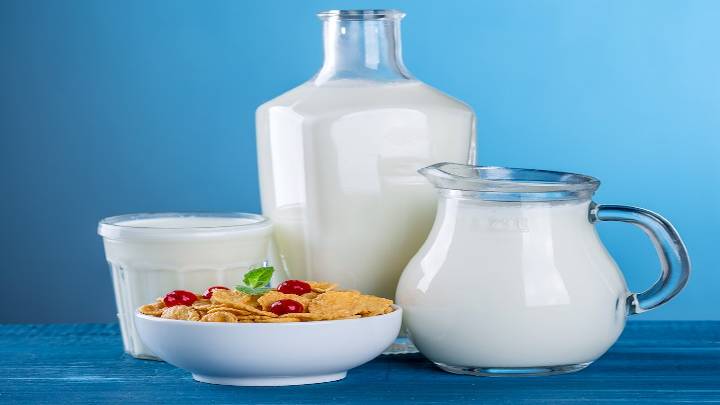Ever wondered why taking anything that contains milk unsettles you and makes you poop?
You might be experiencing the urge to visit the toilet when you take milk as a result of lactase deficiency which in turn makes you lactose intolerant. Lactose intolerance means that your body cannot completely digest lactose (the sugar found in milk).
Your body’s inability to digest milk will often lead to frequent toilet trips, discomfort, bloating, and gas.
This article helps you understand what milk or lactose intolerance is, why it makes you poop, and how you can treat or control it.
Can you die from lactose intolerance?
No, lactose intolerance cannot kill you at least not immediately but it can cause you some major discomfort and embarrassment.
Taking dairy or milk when you’re lactose intolerant can lead to diarrhea, nausea, gas, constipation, and cramps.
However, there is a possibility of getting killed by milk or dairy allergy. Milk allergy can lead to anaphylaxis, which happens to be a very severe allergic reaction that can result in death.
Can lactose intolerance get worse?
Yes, lactose intolerance symptoms can definitely get worse if you ignore them and continue eating dairy products.
This is especially true as you get older and your body becomes unable to efficiently produce lactase.
However, the severity of your lactose intolerance depends on how much lactose or dairy products you consume.
SEE: How Many Glasses Of Milk You Should Drink Per Day
Why does milk make me poop now but not before?
Your newfound urge to poop after taking milk can be a result of aging and your body’s inability to produce enough lactase.
You’re probably wondering why you’ve never experienced these issues when you were younger or even months ago. That is because infants and younger people or children are usually capable of producing enough lactase to digest dairy.
Unfortunately, as you grow old, your body’s ability to also create the enzyme (lactase) reduces. This is why you see more adults and teenagers suddenly suffer from lactose intolerance while most babies and children have no problem ingesting dairy.
What causes milk intolerance?
Milk intolerance is a result of your body being unable to make enough lactase needed in digesting lactose (the sugar found in dairy products).

The enzyme lactase which is usually produced in the small intestine is a protein responsible for starting a chemical reaction that leads to the digestion of lactose.
When you have a lactase deficiency, it means the enzymes needed to digest lactose are insufficient. This means that your body has no means of digesting the sugar and must look for means to expel it from the body.
Hence, it’s why you sometimes have diarrhea or watery stool, cramps, constipation, bloating, gas, and stomach upset. If you experience this upon ingesting milk, then you should discontinue dairy foods.
What are the symptoms of lactose intolerance?
Common symptoms you might experience if you are lactose intolerant include gas, diarrhea, constipation, nausea, bloating, or cramps. This usually occurs within 30 minutes or 1 hour of ingesting dairy products like milk, cheese, yogurt, etc.
Also, these symptoms serve as a clear indication that your body cannot digest the lactose you consumed.
SEE: Substitutes For Parmesan Cheese In Alfredo – Excellent Alternatives
How do you stop diarrhea after drinking milk?
Drugs like Pepto-Bismol or Imodium are great relief over-the-counter medications that can help put your diarrhea under control.
These medications contain subsalicylate and loperamide which are active ingredients in diarrhea treatment. These ingredients help halt or slow the movement of fluids in the intestines and will proactively restore regular bowel movements.
How would you know if you are intolerant to milk?
To confirm if you’re lactose intolerant, you can conduct a self-diagnostic test by stopping all foods containing dairy (milk, cheese, butter, yogurt, ice cream, etc) and then checking if your symptoms improve.
Once your symptoms improve within two weeks, go back to eating dairy products and check if your symptoms reappear. If it does, you’re most likely intolerant to lactose.
Note that it can take up to 21 days before your body completely erases cow milk protein from your system. I would recommend waiting for three weeks before consuming dairy again to get accurate results.
You can also go to the clinic to conduct a lactose breath test if you want some professional medical confirmation.
SEE: Vitamin D Milk vs Whole Milk: Is There Any Difference?
Can you treat lactose intolerance in order to take milk?
Yes, you can keep your lactose intolerance in check by using lactase enzyme tablets. This might allow you to continue eating some dairy products like yogurt, and cheese (Swiss, cheddar, and/or Parmesan).
Such treatments will also allow you to eat nonfat or low-fat milk products that contain lesser amounts of lactose. The use of lactase enzyme drops or tablets can help you achieve dairy consumption without symptoms.
What’s even better is that you can purchase them over the counter. However, note that lactase enzyme tablets do not work for every lactose intolerant patient and might not ease your symptoms.
Lactase enzyme medications generally work by adding them to your carton of milk or by taking them before you consume anything that has dairy.
With the aid of lactase enzyme tablets or drops, you can still consume up to half of a cup of milk without experiencing any symptoms.
However, if you happen to be among the unlucky few who the enzyme tablets have no effect on, then I would recommend you stick to lactose-free milk products available in most supermarkets.
Common examples of lactose-free milk include almond milk, coconut milk, oat milk, and cashew milk.
SEE: Can You Freeze Coconut Milk Over and Over Again?
Can lactose intolerance be cured?
Unfortunately, no cure exists for lactose intolerance but you can manage the symptoms through necessary diet changes.
Lactose intolerance, especially those inherited genetically, are medical conditions that are mostly permanent. However, their severity differs from person to person.
While some can handle a little lactose in their diet, others need the use of lactase enzyme medications, while some remain completely intolerant to even the slightest intake.
Totally avoiding meals containing lactose or limiting your intake, are recommended means of dealing with this medical condition and avoiding nasty symptoms.
Also, certain milk intolerance conditions like gastroenteritis are temporary and will disappear within weeks or days.
FAQs
Why do you poop after drinking milk but not cheese?
This might either be a result of milk allergies or an insufficient amount of lactase in your intestine.
Can you react to milk and not have lactose intolerance?
Yes, you can have a milk allergy and not be lactose intolerant. Milk allergies are noticeable within minutes and also surface in hours. These allergies may also extend beyond animal milk to other types of milk like soy.
Can lactose intolerance make you vomit?
Yes, lactose intolerance can lead to you vomiting as a result of nausea. This may also be accompanied by diarrhea.
Conclusion
While your sudden urge to dash to the toilet might most likely be a result of lactose intolerance, other conditions exist. Other conditions that can lead to diarrhea after ingesting milk include gastroenteritis (stomach flu) or milk allergies.
Gastroenteritis typically clears up within days or weeks while milk allergies are abnormal responses by your immune system to animal milk (sheep, cow, goat, etc) and some non-animal milk like soya.
I would recommend making use of non-dairy alternatives in such cases. Find out why even lactose-free milk can still make you sick and why non-dairy milk products are better alternatives.
I hope you found this article helpful. Thanks for reading.






